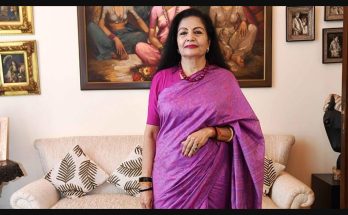MOSCOW: Amid the shifting geo-political power equations and competing demands made on its friendship, India continues to regard Russia as a key pillar of its foreign policy and wants Moscow, its time-tested strategic partner, to do more to get New Delhi inside the tent of a reformed United Nations Security Council.
Underlining the importance of India as “an important world player that has wider international influence and responsibility,” Rajiv Bhatia, the head of the Indian Council of World Affairs (ICWA), the country’s preeminent think tank, nudged Russia to be more proactive in spurring India’s inclusion into the UNSC.
“India’s interest in securing permanent membership of UN Security Council is supported by Russia, but there is now an expectation that our Russian friends need to do more – and be seen to be doing more – in the desired direction,” Bhatia told leading Russian experts and analysts in the Russian capital. He added that Russia and India could consider stepping up their coordination and cooperation in organisations like the BRICS, the Russia-India-China (RIC) trilateral and the East Asia Summit (EAS) for mutual benefit.
Bhatia is leading a delegation of Indian scholars to Moscow for a track II dialogue on “New Contours of India-Russia Special and Privileged Strategic Partnership.” The dialogue has been co-organised by the Moscow State Institute of International Relations (MGIMO) and the ICWA, the leading think tanks of India and Russia.
Common Worldview
Voicing the collective consensus among the political leadership and the strategic community in India about building stronger relation with Moscow, Bhatia underlined that India and Russia essentially shared a common worldview and the belief that “the contemporary world is essentially multi-polar where poles (or pillars) are of varying size and strength and that a working equilibrium among them is crucial for peace and security.” He also stressed the shared “conviction that the world’s governance structures should be more representative of shifts in power equations since the end of the Cold War.”
“In this general context, India views Russia as an important world player that has wider international influence and responsibility. Indian leadership considers relations with Russia as ‘a key pillar’ of India’s foreign policy. Hence, friendly and cooperative equations between our two countries have vital global, regional and bilateral dimensions that need to be studied and strengthened.”
Special and Privileged Ties
 Bhatia’s emphasis on the pivotal place Russia continues to occupy in India’s foreign policy calculus is timely and significant as the powers-that-be in Moscow are uneasy about New Delhi’s perceived drift into the American camp. Against this backdrop, the Track II dialogue has been “structured to deepen and diversify the time-tested and multi-dimensional relationship that happily exists between India and Russia.”
Bhatia’s emphasis on the pivotal place Russia continues to occupy in India’s foreign policy calculus is timely and significant as the powers-that-be in Moscow are uneasy about New Delhi’s perceived drift into the American camp. Against this backdrop, the Track II dialogue has been “structured to deepen and diversify the time-tested and multi-dimensional relationship that happily exists between India and Russia.”
Placing the burgeoning India-Russia relations against the larger backdrop of the changing international strategic environment, Bhatia, a veteran diplomat and commentator on international issues, underscored that “India-Russia relations have been free from bilateral disputes.”
“They have been flourishing as ‘a special and privileged strategic partnership.’ Their tenor and trajectory are moulded not only by what the two countries do or do not do between themselves, but also by the pattern of relationships involving other major powers such as US, China, EU and Japan. There is a need to study and investigate the impact of this factor on our mutual perceptions and cooperation.”
Despite vagaries of the international defence market, Russia continues to be India’s largest supplier of cutting-edge military hardware. Russia has also robustly backed India’s global nuclear entente and is a partner of choice in New Delhi’s aspiration to scale up the share of nuclear electricity in the country’s energy mix.
However, India’s accelerated engagement with the US, which was spurred by a landmark civil nuclear deal, has evoked apprehensions among influential sections in Moscow about its diminishing influence over an old friend, by whom it has stood by in good times as well as bad. Indian leaders and policy-makers have repeatedly quelled such apprehensions, but need to be more proactive in this communication game.
In a speech last year, India’s Foreign Secretary Ranjan Mathai described the Indo-Russian strategic partnership as “special and privileged” which remains “a key priority” and stressed that it added decisive value to India’s national capacities even today in this re-defined post-Cold War world.
Author Profile
- India Writes Network (www.indiawrites.org) is an emerging think tank and a media-publishing company focused on international affairs & the India Story. Centre for Global India Insights is the research arm of India Writes Network. To subscribe to India and the World, write to editor@indiawrites.org. A venture of TGII Media Private Limited, a leading media, publishing and consultancy company, IWN has carved a niche for balanced and exhaustive reporting and analysis of international affairs. Eminent personalities, politicians, diplomats, authors, strategy gurus and news-makers have contributed to India Writes Network, as also “India and the World,” a magazine focused on global affairs.
Latest entries
 DiplomacyApril 23, 2024Resetting West Asia, re-booting the world, but not fast enough: T.S. Tirumurti
DiplomacyApril 23, 2024Resetting West Asia, re-booting the world, but not fast enough: T.S. Tirumurti India and the WorldApril 22, 2024India’s G20 Legacy: Mainstreaming Africa, Global South in global agenda
India and the WorldApril 22, 2024India’s G20 Legacy: Mainstreaming Africa, Global South in global agenda DiplomacyApril 10, 2024Diplomat-author Lakshmi Puri pitches for women power at LSR
DiplomacyApril 10, 2024Diplomat-author Lakshmi Puri pitches for women power at LSR India and the WorldApril 6, 2024UN envoy pitches to take India’s solutions to the world stage
India and the WorldApril 6, 2024UN envoy pitches to take India’s solutions to the world stage







